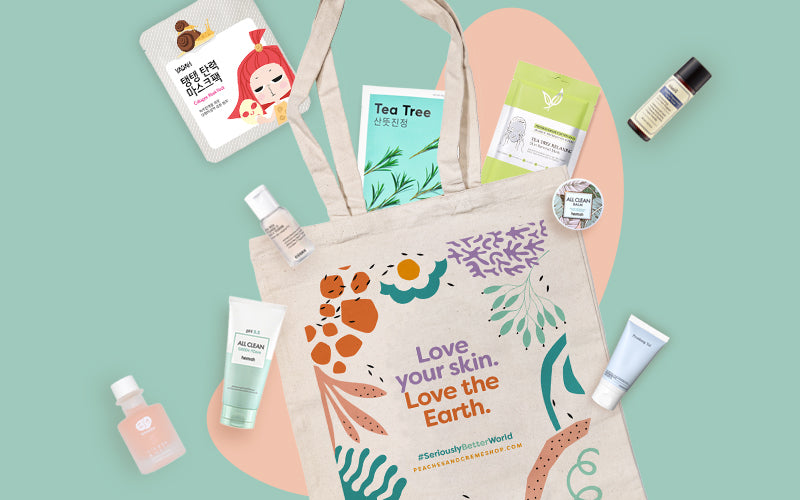Dealing with Fungal Acne
This is a guest post by one of our customers. Here she shares her experiences and learnings - hopefully, you'll learn something new in your fight against fungal acne!
--
I self-diagnosed earlier this year with fungal acne when I came across a review on a skincare page. The review was on a product that could feed fungal acne if you’re suffering from it.
Before Covid, I used to have clear skin and my skin did not react to any ingredients (except for BHA as I don’t like moisturiser 😉). Now that we are required to wear masks, I started having acne around my chin. I wasn’t bothered at all, but over the summer I started getting acne on my cheeks as well. I tried a lot of anti-acne products, but I noticed that my acne just wouldn’t go away and it didn’t respond at all to any treatments.
When I learned about fungal acne, I read up a bit more and learned that it is caused by yeast that triggers inflammation in the hair follicles on the skin, leading to acne-like spots. These are small itchy bumps on the face that could be triggered when the immune system is weakened, or when one sweats excessively. Excessive oil on the skin can also create the ideal growth environments for fungal acne.
Wearing a face mask can also cause fungal acne as breathing into a closed-off space creates humidity and causes you to sweat.
After learning this, I changed my skincare routine and researched every component of my skincare products if it contains fungal acne-feeding ingredients.
These ingredients should be avoided as these will only feed fungal acne:
- Oils
- Fatty acids
- Coconut oil
- Esters and polysorbates (avoid all esters and polysorbates except those made of caprylic or capric acid).
To be sure if a product is safe for fungal acne, search for a product or copy its ingredient list into a database such as Folliculitis Scout or Skincarisma.
I switched my skincare routine to include fungal acne-fighting ingredients. What ingredients to look for:
- Switch up your skincare routine to include salicylic acid to purge the pores.
- Propolis helps treat acne (even fungal acne). Most of those suffering from fungal acne use Benton Propolis Soothing Gel.
My AM/PM anti-fungal acne skincare routine
Cleanse: By Wishtrend Acid-duo 2% Mild Gel Cleanser - I needed something that is mild yet quite deep cleansing. Good thing about this is that it has willow bark extract (a source of salicylic acid-like ingredient that fights fungal acne).
Toner: I’m From Mugwort Essence and Klairs Supple Preparation Facial Toner—I alternate the use of these (morning and night). Both are fungal acne-safe, lightweight and easily absorbed by my oily skin. Mugwort is a great ingredient to help detox and clear the skin, while also helping it heal.
Moisturizer: Benton Propolis Soothing Gel – Propolis has antibacterial and anti-inflammatory properties and it is not only effective at getting rid of pimples, but also preventing them by easing the inflammation that leads to the acne. After using this for a week, I saw improvement on my face. When my skin is extra-dry, I use Vitamin Tree (I’m From). This is also fungal acne-safe and makes my skin glow.
Physical exfoliant: Sioris My Soft Grain Scrub - I use this with my cleanser and this helped improve my hyperpigmentation around the lip area. This will leave your skin smooth (and not dry) as oats are not harsh on skin and helps soothe inflammation. I use this 2x a week.
Chemical exfoliant: Cosrx BHA Blackhead Power Liquid - It also contains willow bark extract which reduces excess oil, minimizing the appearance of pores. It lessened my blackheads around the nose area. I use this 2x a week when I don’t use the Sioris Soft Grain Scrub.
Mask: I’m From Mugwort Mask - I use this after cleansing my face with Sioris Soft Grain Scrub. This mask is so calming and it’s great to calm fungal acne.
Suncreen: Missha Aqua Sun Gel – Does not contain fungi-feeding ingredients. Most skincare advice would suggest to never miss your sunscreen regardless of the season as sun's rays damages the skin's natural barrier and would in turn lead to an increase in oil production.
These days, wearing a mask when going outside is required, so we have to ensure that we avoid those fungal acne triggers. I suggest that you wash your face after wearing a facemask, always apply sunscreen, and change out of any sweaty clothes ASAP after workout.
And don't forget to wash your face! :D









Leave a comment